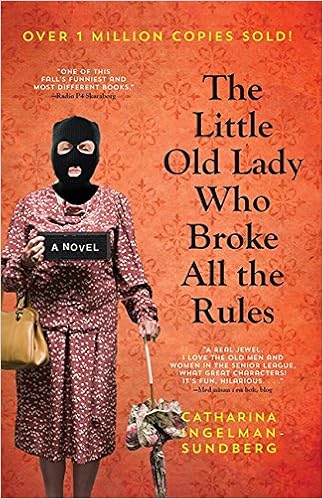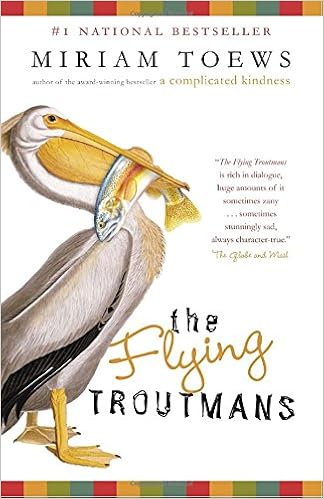Of the 100 books I
read, I’ve chosen my top 25 reads, organizing them into four categories: Best Canadian Fiction, Best Fiction from the
United Kingdom, Best American Fiction, and Best International Fiction. Within
each category, the books are not ranked.
Best Canadian Fiction
American War by Omar El Akkad: https://schatjesshelves.blogspot.com/2018/03/review-of-american-war-by-omar-el-akkad.html
The Very Marrow of Our
Bones by
Christine Higdon: https://schatjesshelves.blogspot.com/2018/04/review-of-very-marrow-of-our-bones-by.html
Warlight by Michael Ondaatje: https://schatjesshelves.blogspot.com/2018/05/review-of-warlight-by-michael-ondaatje.html
The Boat People by Sharon Bala: https://schatjesshelves.blogspot.com/2018/05/review-of-boat-people-by-sharon-bala.html
Mary Cyr by David Adams Richards: https://schatjesshelves.blogspot.com/2018/05/review-of-mary-cyr-by-david-adams.html
Women Talking by Miriam Toews: https://schatjesshelves.blogspot.com/2018/08/review-of-women-talking-by-miriam-toews.html
Up From Freedom by Wayne Grady: https://schatjesshelves.blogspot.com/2018/08/review-of-up-from-freedom-by-wayne.html
Washington Black by Esi Edugyan: https://schatjesshelves.blogspot.com/2018/11/review-of-washington-black-by-esi.html
Dear Evelyn by Kathy Page: https://schatjesshelves.blogspot.com/2018/12/review-of-dear-evelyn-by-kathy-page.html
Best Fiction from the United
Kingdom
The Music Shop by Rachel Joyce: https://schatjesshelves.blogspot.com/2018/01/review-of-music-shop-by-rachel-joyce.html
Eleanor Oliphant is
Completely Fine
by Gail Honeyman: https://schatjesshelves.blogspot.com/2018/03/review-of-eleanor-oliphant-is.html
Reservoir 13 by Jon McGregor: https://schatjesshelves.blogspot.com/2018/03/review-of-reservoir-13-by-jon-mcgregor.html
The Only Story by Julian Barnes: https://schatjesshelves.blogspot.com/2018/04/review-of-only-story-by-julian-barnes.html
Home Fire by Kamila Shamsie: https://schatjesshelves.blogspot.com/2018/04/review-of-home-fire-by-kamila-shamsie.html
Whistle in the Dark by Emma Healey: https://schatjesshelves.blogspot.com/2018/05/review-of-whistle-in-dark-by-emma.html
The Gustav Sonata by Rose Tremain: https://schatjesshelves.blogspot.com/2018/07/review-of-gustav-sonata-by-rose-tremain.html
Midwinter Break by Bernard MacLaverty: https://schatjesshelves.blogspot.com/2018/12/review-of-midwinter-break-by-bernard.html
The Silence of the
Girls by Pat
Barker: https://schatjesshelves.blogspot.com/2018/12/review-of-silence-of-girls-by-pat-barker.html
Best American Fiction
Circe by Madeline Miller: https://schatjesshelves.blogspot.com/2018/09/review-of-circe-by-madeline-miller.html
An American Marriage by Tayari Jones: https://schatjesshelves.blogspot.com/2018/10/review-of-american-marriage-by-tayari.html
The Mercy Seat by Elizabeth H. Winthrop: https://schatjesshelves.blogspot.com/2018/10/review-of-mercy-seat-by-elizabeth-h.html
Unsheltered by Barbara Kingsolver: https://schatjesshelves.blogspot.com/2018/11/review-of-unsheltered-by-barbara.html
Best International Fiction
The Good People by Hannah Kent (Australia): https://schatjesshelves.blogspot.com/2018/01/review-of-good-people-by-hannah-kent.html
Bridge of Clay by Markus Zusak (Australia): https://schatjesshelves.blogspot.com/2018/12/review-of-bridge-of-clay-by-markus-zusak.html
Tench by Inge Schilperood (The
Netherlands): https://schatjesshelves.blogspot.com/2018/02/review-of-tench-by-inge-schilperoord.html




